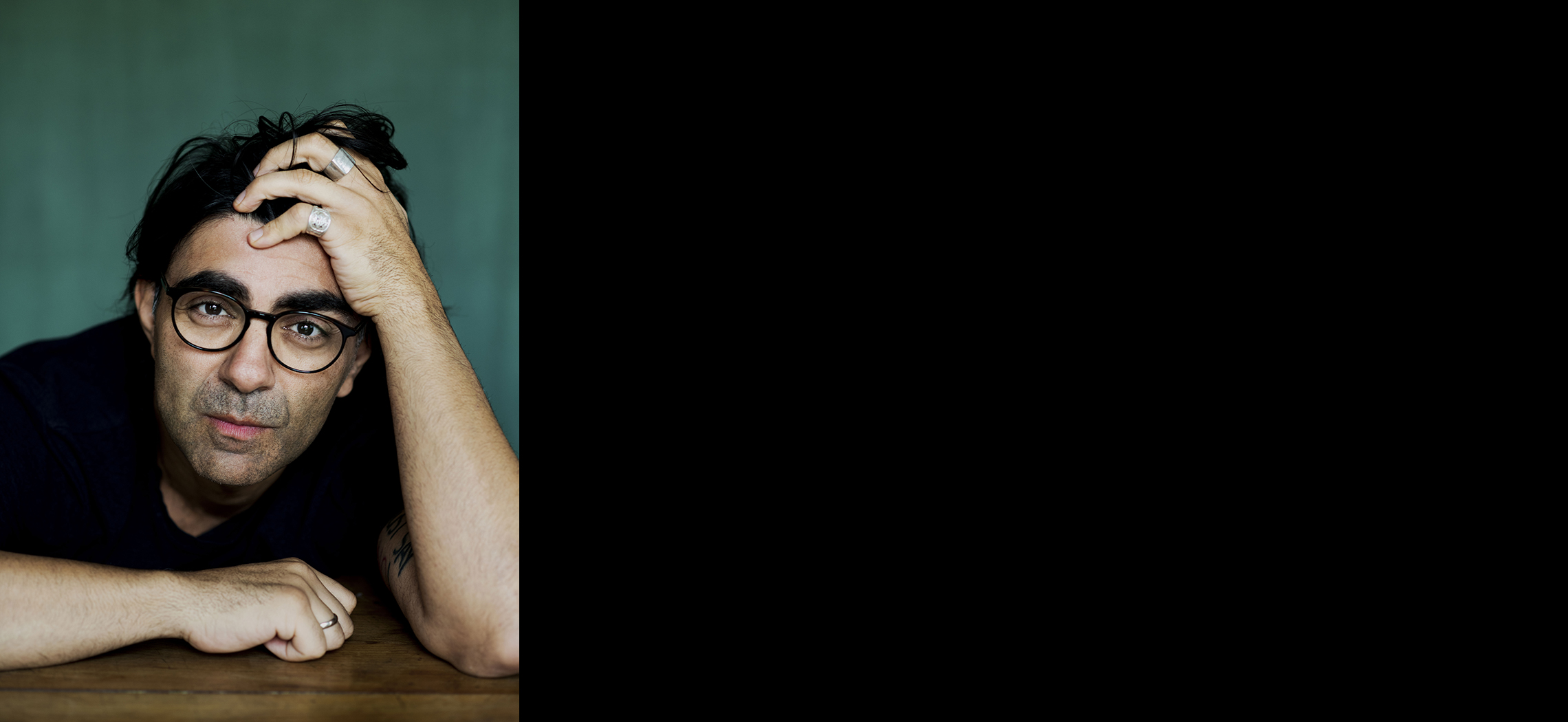A Portrait of director Fatih Akin
Fatih Akin © Linda Rosa Saal“It’s a very special, unusual film for me,” Fatih Akin says of AMRUM, his twelfth feature film, with which he has now been invited to Cannes. The story is loosely based on the childhood memories of Hark Bohm – filmmaker, screenwriter and actor. He was born in 1939 and, like the boy in the film, grew up on the German North Sea island of Amrum, where he lived through the final weeks of the Second World War and the upheaval that followed. “At some point, Hark told me about his childhood and I encouraged him to make a film about it,” says Akin, who has been friends with Bohm for years. They co-wrote the screenplay for IN THE FADE. “Hark wrote a first version of AMRUM, and originally, I just wanted to produce it.” But in the end, Bohm asked his friend and colleague to direct the film, being so much younger. “I had to do some soul-searching. Can I do this? Can I do that? Do I want to do this?” Because at first glance, he thought he couldn’t relate to the story set in 1945. “What really helped me was my love of cinema. A spark was ignited, and I began to think about how I could tell the story and the way to film it.”
Today, he calls the film adaptation “my mission”. As a native of Hamburg, Akin got to know Bohm’s films early on, NORTH SEA IS DEAD SEA and MORITZ DEAR MORITZ “had a huge influence on me during my childhood and early youth. I even became a filmmaker because of him,” he emphasises. At school in 1988, we watched ‘YASEMIN’, which was set practically on my doorstep, in Hamburg-Ottensen. And it had Turkish characters. That’s when I knew: I don’t have to go to Hollywood, I can make films right here. That was a vital realisation.”
Akin shortened and rewrote the screenplay for AMRUM, making it into his own. Bohm turned the material into a novel at the same time, co-writing with Philipp Winkler, and the book was published last year. By then, the preparations for Akin’s film were already well underway, so it is definitely not an adaptation of the novel, but Akin’s very own version. Much of 12-year-old Nanning’s story reminded him of his own upbringing, of summer holidays in his father’s Turkish fishing village, still very close to nature in the 1980s.
By confronting Bohm’s history and Germany’s past, he realised how German he was himself, says the son of Turkish immigrants born in Hamburg in 1973. “It was like a kind of coming out for me.” Even though the film is set 80 years ago, Akin believes it is up-to-date and relevant today. “When Nanning learns later in the film that his parents were Nazis and bore some guilt, he says: ‘It‘s not my fault’. He is then told: ‘But it still affects you.’ That sentence explains a lot of what continues to characterise our society today.” Akin also wanted to depict this visually, using modern optics and a clear image, “to create a sense of the here and now,” he says, explaining his concept in collaboration with cinematographer Karl Walter Lindenlaub. The adult roles are played by top-calibre actors such as Diane Kruger, Matthias Schweighöfer, Laura Tonke and Detlev Buck. His young lead actor Jasper Billerbeck was found by children‘s casting director Jacqueline Rietz. “I knew straight away that he was the one,” says Akin. The character is difficult, “he’s an outsider who comes to the island from Hamburg, but also the son of Nazis who needs to earn the islanders’ approval.”
And AMRUM is told entirely from his point of view, from the perspective of a child: the film is “radically innocent”. The scenes in nature were filmed on Amrum, the interiors shot in the Hamburg studio, and the historical settlements in Denmark. The weather and tides were a challenge, says Akin, as were the short filming schedules with children. We were only allowed to shoot three hours a day with Jasper and he was in almost every scene. “We rehearsed with doubles for five hours every day and then filmed with Jasper in the evenings when the light was at its best.”
He is very happy to be running in the Première section in Cannes this year. “Running in the competition is great, but it also creates a lot of pressure. I’m glad that it will be more relaxed this time.” Akin hopes that audiences will recognise themselves in this family story. “You can’t choose your parents. How do you deal with someone you love voting for a radical party?” The film offers no reconciliation, he says at the end. “It portrays the rifts, and the attitudes that you need to come to terms with somehow. And that makes it very relevant and very contemporary.”
Thomas Abeltshauser

